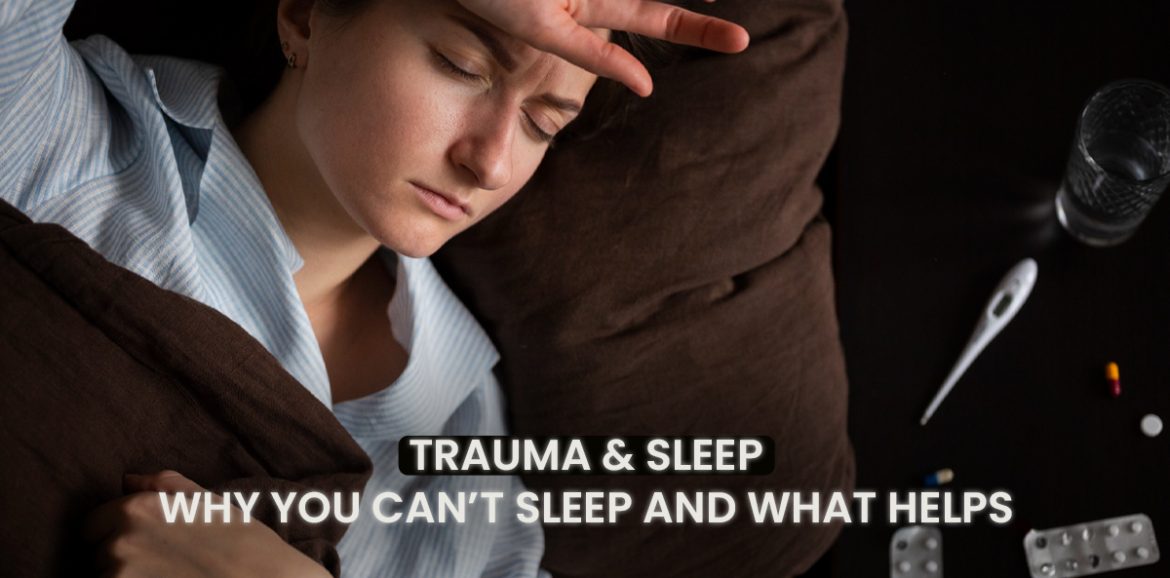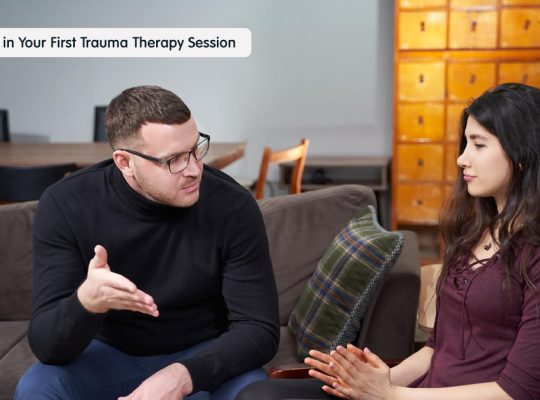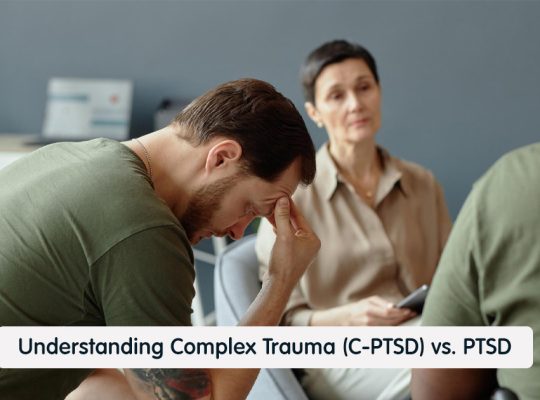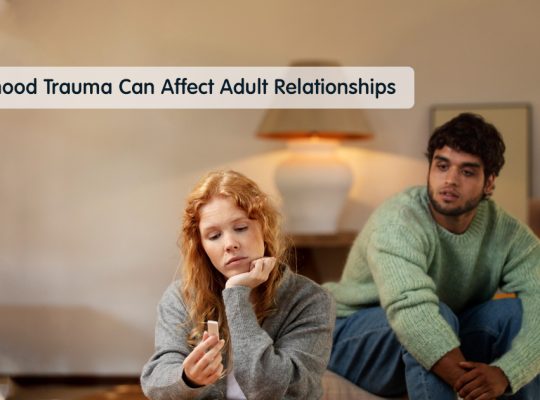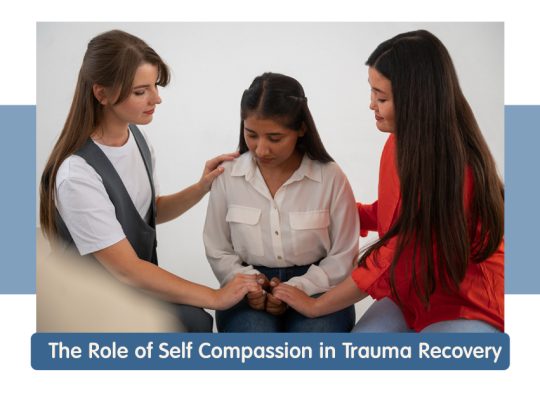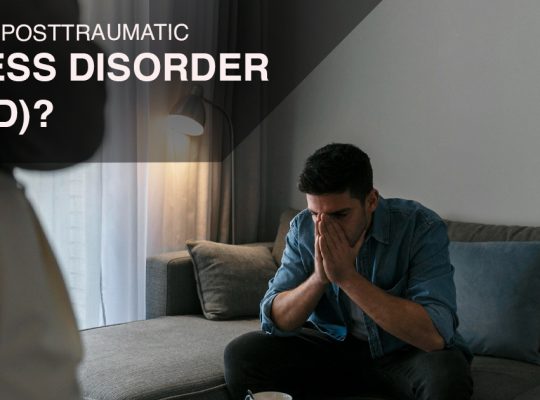When the Mind Can’t Rest, Neither Can the Body
You lie in bed, eyes wide open, exhausted yet unable to drift off. Your body feels tense, your thoughts won’t slow down, and the night stretches endlessly. If this sounds familiar, you’re not alone. For many people, unresolved trauma makes peaceful sleep feel almost impossible.
At ATX Trauma Therapy Center, therapists understand that the connection between trauma and sleep runs deep. Your body might be safe now, but your mind is still on high alert, reliving, replaying, and reacting to the past. These trauma problems can keep your nervous system stuck in survival mode, making sleep feel unsafe.
How Trauma Disrupts Sleep
Sleep is supposed to be the body’s natural way of healing. But for someone dealing with trauma, the brain doesn’t easily switch off. It keeps scanning for danger even when the world is quiet.
Here’s how trauma problems often affect sleep:
- Hypervigilance: You stay alert at night, waiting for something bad to happen.
- Nightmares or flashbacks: Disturbing dreams can wake you suddenly, leaving your heart racing.
- Restlessness: Anxiety makes it hard to stay asleep, even when you’re exhausted.
- Physical tension: Trauma can live in the body, causing stiffness or discomfort that interrupts rest.
These sleep problems are not “just in your head.” They are real physiological responses that your body developed to protect you. The challenge is teaching your mind and body that rest is safe again, and that’s where ATX Trauma Therapy Center comes in.
The Connection Between the Nervous System and Sleep
Your nervous system has two main modes: “fight or flight” and “rest and digest.” After trauma, the “fight or flight” mode often gets stuck in the “on” position. This means that even when you’re trying to sleep, your body acts like it’s in danger.
Therapists at ATX Trauma Therapy Center work with clients to retrain the nervous system. Through gentle, evidence-based methods, they help restore the natural rhythm between alertness and relaxation. When your body learns it’s safe, your brain can finally let go and rest.
How ATX Trauma Therapy Center Helps You Heal
Healing sleep begins with healing trauma. The team at ATX Trauma Therapy Center provides trauma-focused care designed to calm both body and mind. Each session is personalized because everyone’s story and sleep struggle is unique.
Here’s what clients can expect:
- Safe, judgment-free therapy sessions that build trust and understanding.
- Evidence-based approaches like EMDR, somatic therapy, and mindfulness can help process trauma gently.
- Body-based healing techniques to release tension stored in muscles and nerves.
- Emotional regulation strategies to quiet racing thoughts before bed.
- Consistent support from therapists who genuinely care about your progress.
Every step of therapy is guided, compassionate, and aimed at long-term healing. This isn’t a quick fix; it’s about helping you reclaim peaceful rest by addressing the root of your trauma problems.
Recognizing the Signs That Trauma Is Affecting Your Sleep
Many people don’t realize their sleep problems are linked to trauma. You might think you’re just a “bad sleeper” or that stress is to blame. But there are telltale signs that trauma might be the cause:
- You wake up frequently during the night with your heart pounding.
- You dread going to sleep because of nightmares.
- You feel mentally foggy even after hours in bed.
- You experience tension or pain at night with no medical cause.
- You often feel emotionally drained or on edge after waking.
If these sound familiar, it’s time to seek trauma-informed care from experts who understand the mind-body connection, like the professionals at ATX Trauma Therapy Center.
FAQs
1. Why does trauma affect my sleep so much?
Because trauma keeps your nervous system alert. Your brain doesn’t recognize that you’re safe, so it struggles to relax and rest.
2. Can trauma cause nightmares or night terrors?
Yes. Nightmares are one of the most common symptoms of post-traumatic stress. Therapy can help reduce their frequency and intensity.
3. How does therapy improve sleep?
By processing trauma in a safe space, your body learns to regulate its stress response, making it easier to fall and stay asleep.
4. Is medication necessary for trauma-related sleep issues?
Not always. Many clients find significant improvement through trauma-focused therapy alone, though treatment is tailored individually.
5. Why choose ATX Trauma Therapy Center?
Because they specialize in trauma care that addresses both emotional and physical symptoms, helping you heal deeply and sleep peacefully.
Take the First Step Toward Restful Sleep
You don’t have to spend another sleepless night wrestling with your thoughts. ATX Trauma Therapy Center can help you understand your trauma problems, calm your nervous system, and find relief from ongoing sleep problems. With the right support, peace and rest are absolutely possible.
Reach out to ATX Trauma Therapy Center today and take back your nights, one peaceful sleep at a time.

